2019 NAEd/SPENCER DISSERTATION FELLOWS
Desiree Abu-Odeh, Columbia University

Desiree Abu-Odeh is a history-track Ph.D. Candidate in Columbia University’s Department of Sociomedical Sciences. Prior to beginning her doctoral studies, Desiree earned an MA in Bioethics from the University of Minnesota and an MPH in Sociomedical Sciences from Columbia. While earning her MA, she became interested in social and political histories of science, medicine, and public health, and intermeshed constructions of gender, sexuality, race, and disease. These interests are reflected in Desiree’s MA thesis on the impact of body ideals and obesity on people’s identities and her MPH thesis, a historiographical essay on gendered and racialized understandings of addiction and their relationships with anti-narcoticism and drug control policies in the U.S. Desiree’s bioethics and public health work has been published in the Kennedy Institute of Ethics Journal, Public Health Reports, and the American Journal of Public Health. As a doctoral student, Desiree studies the history of public health, women’s history, history of social movements, and history of higher education. Her dissertation examines responses to sexual violence on American college campuses in the post-World War II era. In addition to a NAEd/Spencer Dissertation Fellowship, she has received funding for her doctoral studies and dissertation research from her department’s Predoctoral Fellowship in Gender, Sexuality and Health, the Columbia Population Research Center, Harvard’s Schlesinger Library on the History of Women in America, Barnard Library, and Smith College Libraries. She is currently an Editor and Social Media Manager for the online blog NOTCHES: (re)marks on the history of sexuality.
The Sexual Violence Problem and Anti-Violence Work on American College Campuses, 1950 to 2000
Using archival and oral history methods, my dissertation examines the sexual violence problem’s emergence and responses to it on American college campuses in the post-World War II period. After the war through the 1980s, there was an unprecedented increase in women’s enrollment in colleges and entry into academia, law, medicine, and other previously closed-off professions. That coincided with the “second wave” of American feminism in the 1960s and 70s, during which women’s liberation practices led many to develop an anti-rape consciousness and new theories of sexual violence. These twin developments made the American university a particularly productive space to address and prevent sexual violence. Universities possessed enormous intellectual and material resources. They espoused commitments to truth and free inquiry. And, increasingly, they needed to comply with emerging anti-discrimination and campus safety regulations. All of these features provided those doing anti-violence work with a language to invoke and tools to marshal to see through long-term changes in colleges’ responses to rape and sexual harassment. These changes included innovations in campus security, counseling services, health education, and sexual misconduct policies. In revisiting the ways we’ve thought about and responded to campus sexual violence over time, my work discerns and contextualizes those areas in which we’ve made great progress and those where there’s still work to be done. As such, my work has the potential to inform programs and policies that could make universities safer, healthier, and more inclusive.
Aldo Anzures Tapia, University of Pennsylvania
Aldo Anzures Tapia is a doctoral candidate in Educational Linguistics at the University of Pennsylvania with a concentration in International Educational Development. He holds an M.A. in International Educational Development from Teachers College, Columbia University. While receiving his BA in Psychology from the National Autonomous University of Mexico, he taught in a nursery-6th grade school in Mexico City, where he became the curriculum coordinator. To better understand how international and domestic educational policies were implemented but also contested at his school, he pursued a career as a consultant for the International Baccalaureate Organization (IB), a position he still holds today. Given his special interest in the implementation of language policies in the early years of education, he became part of their Review Task Force that advanced processes of language learning within schools that attend to early childhood education around the world. At Penn, he specializes in the role of ethnographic research in the implementation of language policies within Indigenous contexts. He also works with the Penn Cultural Heritage Center where his research centers on collaborative Indigenous language reclamation efforts in the Yucatan Peninsula. As a critical part of his doctoral studies, he has engaged in research with different stakeholders in Huaytsik since 2015–the town where his dissertation takes place. His dissertation is a continuation of his collaboration with this community, where he exemplifies how long-term partnerships are crucial components in understanding policy making at the early childhood education levels.

The Promise of Language Planning in Indigenous Early Childhood Education in Mexico
Early childhood education (ECE) has been branded as a social equalizer that will reverse poverty trends in Mexico. At the same time, language policies that mandate education in Indigenous languages clash with policies that promote Spanish and English as the languages of instruction in preschools, sending contrasting messages about inclusion and justice through the learning of these languages. When language is included in ECE debates in Mexico, it is often used as a proxy for “school readiness”—as in, students are prepared to attend classes in Spanish, the actual language of instruction—precluding discussions on multilingual education and overlooking the impacts of these policies in Indigenous communities. Preschools, especially Indigenous ones, are the social spaces in which these competing policies first interact, revealing implementation challenges at all levels, from professional development to textbook design. This study provides an ethnographic account of how different stakeholders in one Indigenous community in the Yucatan Peninsula respond to language policies and ECE initiatives that promise quality education under the guise of social justice, inclusive education, and economic returns. Moreover, situated within a region coping with migration and mass tourism, my study also traces the impact of these processes on the compromises parents and teachers make in regard to their children’s education. This study deepens our understanding of the ways in which language policies are implemented in ECE settings, but even more crucially, contributes to the design of programs that consider the complexities of ECE in Indigenous contexts.
Zachary Bleemer, University of California, Berkeley
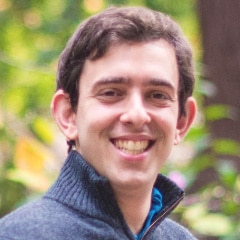
Zachary Bleemer is a Ph.D. candidate in Economics at UC Berkeley. He is also the director of the UC ClioMetric History Project at Berkeley’s Center for Studies in Higher Education, which has accumulated and constructed one of the largest repositories of computer-readable historical and contemporary university records in the United States, spanning students, faculty, curriculum, and budgetary allocations at many California universities since 1890. Zach’s research combines these data with quasi-experimental research designs to examine the long-run ramifications of young Americans’ post-secondary education and specialization decisions, with a particular focus on university policies—like affirmative action, percent plans, and holistic review—that promote socioeconomic mobility by encouraging enrollment by disadvantaged applicants. He has published studies on the consequences of student debt accumulation, perceived university costs, state disinvestment in public higher education, and youth natural disaster exposure in outlets including the Journal of Public Economics and the Journal of Urban Economics. Zach is a Research Analyst at the UC Office of the President and a member of The Campaign for College Opportunity’s Policy Research Advisory Board. He earned a B.A. in Economics, Mathematics, and Philosophy from Amherst College and previously held research positions at the Federal Reserve Bank of New York and Mathematica Policy Research.
Essays on the Ramifications of American Youths’ Postsecondary Schooling Decisions
My dissertation employs rigorous quasi-experimental research designs and massive novel applicant- and student-level data to estimate how each of three pivotal decisions made by American youths—how much tuition it’s worth paying to attend a university, which university to attend, and which field to major in—impacts their educational success and postgraduate employment outcomes. My first chapter uses detailed financial aid records covering all 2000-2016 UC Berkeley undergraduates—linked to their households and siblings, student surveys, course enrollment and grades, and graduate and postgraduate socioeconomic outcomes—to examine the impact of quasi-random year-over-year variations in financial aid provision arising from discontinuous administrative formulas. In the second chapter, I use difference-in-difference, regression discontinuity, and event study designs combined with a comprehensive application, graduation, and postgraduate labor market database to estimate returns to university selectivity for the lower-preparation applicants admitted to various University of California campuses under affirmative action and percent plan policies. Initial results suggest that disadvantaged applicants’ public research university enrollment provided them with substantial education and employment benefits, rejecting the so-called “mismatch hypothesis”. The third chapter digitizes and exploits a comprehensive database of 1960s-1980s undergraduate student transcripts covering most UC campuses and linked to 2000-2017 annual employment records, estimating the impact of major choice (identified using quasi-random first-year role model and peer effects as instrumental variables) on students’ long-run labor market outcomes. Each chapter provides rigorous new evidence delineating the personal ramifications of college students’ educational decisions, informing both those choices and university administrators’ policy objectives.
Michael Cassidy, Rutgers, The State University of New Jersey
Mike Cassidy is an Economics Ph.D. candidate at Rutgers University. Using the insights of economic theory and the methods of microeconometrics, Mike’s work endeavors to understand how individuals make decisions and how policy can help them make better ones. His animating passion is to improve the well-being of the poor, and he believes quantifying causality through rigorous empiricism offers the best hope of doing so (or at least reflects his comparative advantage).
Prior to joining Rutgers, Mike held positions with the New York City Office of Management and Budget and The Century Foundation. At OMB, Mike oversaw the City’s social service agencies, an experience in policy administration that continues to inform his research. In complementary fashion, Mike’s time at TCF—a progressive think tank where he remains a non-resident fellow—honed his policy analysis and writing skills. In between, he obtained a Master in Public Affairs, with distinction, from Princeton’s Woodrow Wilson School. He also holds a Bachelor of Arts in Communication and in Political Science, summa cum laude, from the University of Pennsylvania.
When he’s not playing with Stata, Mike is a competitive distance runner, competing and training year-round in hopes of improving his marathon personal best of 2:18:52 and returning to the U.S. Olympic Trials. Born and raised in Staten Island, New York, Mike now lives in Manhattan with his wife Molly and their infant son, Max.

Finding the Fit: Childhood Homelessness, Athletics, and the Microeconomics of Educational Performance
It is hard to conceive of a population more disadvantaged than homeless children, or of an antidote more proven than education. Yet curiously, economists have virtually ignored their plight. Similarly, despite a well-documented appreciation of the enduring legacy of childhood health, few studies rigorously investigate the causal link between physical fitness and educational outcomes.
My dissertation consists of three applied microeconomic papers that remedy these deficits. Two study family homelessness. Using an original administrative dataset in the context of a scarcity induced-natural experiment in New York City, I investigate how exogenous variation in government benefits affects behavior. The policy I evaluate is the City’s longstanding strategy of placing families in shelters in the neighborhoods where their youngest children attend school. The first chapter investigates homeless children’s contemporaneous educational outcomes, exploring the impact of proximity on attendance, proficiency, promotion, mobility, and retention. In the second chapter, I turn to the family as a whole, assessing the policy’s effects on length of stay in shelter, public benefit use, and parental employment.
My third paper expands the inquiry to all primary school students, but considers a similarly-underappreciated academic intervention: aerobic exercise. The school-based distance running program I study is a promising means of jointly addressing childhood inactivity and academic lethargy, especially among disadvantaged youth. Exercise can be public policy.
In addition to their policy relevance, these papers contribute to the literature on causal inference in microeconomics by applying an array of cutting-edge econometric techniques, including instrumental variables, regression discontinuity, fixed effects, and difference-in-differences.
Janet Cerda, University of California, Los Angeles
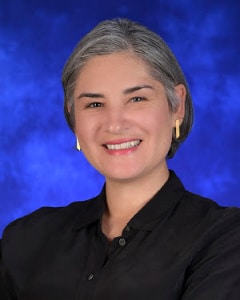
Janet Cerda is a Ph.D. candidate in the Human Development and Psychology Division of UCLA’s Graduate School of Education and Information Studies. Her research investigates the psychosocial and bi/multilingual development of immigrant children and youth over time and examines classroom assessment practices that document K-12 multilingual and multicultural teaching and learning. Janet’s work is informed by her experiences as a classroom teacher, and by her students’, their families’, and her family’s experiences with supporting the home language in different contexts.
Before joining UCLA, Janet was a New York City public school teacher (grades 3 – 6). In Los Angeles, she worked with teachers and school leaders at a university-partnered public school to expand their dual language program to the secondary grades. She has worked at various research labs as a graduate student researcher: The Institute for Immigration, Globalization, and Education; The UCLA Center for Community Schooling; and The ELPA21 Assessment and Professional Development Project at the National Center for Research on Evaluation, Standards, and Student Testing. Janet has also participated in advocacy work, collaborating with the Social and Public Art Resource Center to support bilingual programming funded by the Los Angeles Unified School District and parent workshops sponsored by Californians Together.
Janet holds degrees in Bilingual Education from City University of New York, Hunter College (M.S.Ed) and Studio Art from Oberlin College (B.A. Hons.). She was a New York City Teaching Fellow and is a recipient of the Televisa Foundation Education Award and the Aimée Dorr Fellowship.
Spanish and English Reading Growth Trajectories of Multilingual Students Enrolled in a Dual-Language Immersion Program: Impacts of Language Use, Motivational Processes, and Instructional Programming
In the United States, multilingual students’ home-language proficiency decreases markedly by the third-immigrant generation, even when students are enrolled in dual-language immersion (DLI) schools. Certainly, there are enormous benefits to the acquisition of English proficiency, but there are also significant economic, educational, social, and personal costs in the accompanying loss of the home language. Drawing from a complex systems perspective and employing a mixed-methods design, I examine the following: (1) rates at which multilingual students’ reading proficiency in Spanish and English develops (across nine time points from grades 1 – 5); (2) factors that contribute to different growth rates; (3) students’ insights on their growth, attitudes, and motivations about reading in Spanish and English; and (4) teachers’ insights on the instructional strategies and practices they employed, as well as the challenges they encountered and managed while teaching. Quantitative and qualitative data were collected over a six-year period using student measures (used by teachers to inform instruction) and teacher interviews that documented the strategies, practices, and challenges teachers encountered and managed. This work will provide educators with recommendations on how to enhance the Spanish reading experiences and development of young multilingual students in DLI classrooms in an effort to prevent home language loss.
Jesse Chanin, Tulane University
Jesse Chanin is in her fourth year of doctoral work in the interdisciplinary City, Culture, and Community Ph.D. program at Tulane University. Her dissertation focuses on the connection between middle-class labor unions and social justice struggles, particularly among African-Americans in the South, using the United Teachers of New Orleans as a case study. She is also examining how the conversion of New Orleans into an all-charter district post-Hurricane Katrina affected teachers’ lives and the lessons this charterization process offers for urban districts nationwide.
Jesse received a Bachelor’s degree in Anthropology from Barnard College where she earned departmental honors for her thesis “Memories of Protest: Remembering and Misremembering the Columbia Strike of 1968.” She went on to earn her Master’s in Teaching from Fordham University and worked for five years in the New York City public school system as a classroom teacher.
In addition to her dissertation work, Jesse coordinates the annual Nola to Angola solidarity bike ride, which funds free transportation for families to visit their incarcerated loved ones, and works with Ubuntu Village, a local non-profit that organizes parents and families of incarcerated youth. She founded and facilitates Ubuntu’s participatory action research project.
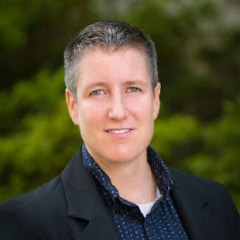
Activism, Power, and Backlash: The United Teachers of New Orleans (UTNO) from 1972 – Today
My dissertation analyzes the United Teachers of New Orleans (UTNO) from 1972 until today, focusing specifically on the period following Hurricane Katrina when the Orleans Parish School Board (OPSB) dismissed over 7,500 UTNO members, including 4,300 teachers. After the storm, the state-run Recovery School District, as well as the OPSB, converted all the city’s public schools into privately-run public charter schools. I use New Orleans’ school privatizations and teacher dismissals as a case study to understand nationwide processes of teacher de-unionization and school reform, especially in urban areas. By focusing on local dynamics in pre- and post-Katrina New Orleans, I examine the impacts of accelerated neoliberal education policies on the ground, attending to teachers’ individual experiences as well as the larger community-wide effects of privatization. I use a mixed-methods research design which includes archival work, semi-structured interviews, and survey data to develop a historical narrative that captures UTNO’s power and political importance as well as the perspectives of individual teachers and union members. Unlike many teachers’ unions, UTNO’s membership was majority-black, matching the student population in Orleans Parish. I examine when racial solidarity led UTNO to support policies that benefited the black poor and when the union advocated narrowly for their own interests, attending to ways in which UTNO both resisted and acquiesced to neoliberal reforms prior to the storm. By centering teachers, this study situates education policy in the context of larger questions of power and justice, examining the ways educational decisions impact labor, democratic participation, and activism.
Katherine Soojin Cho, University of California, Los Angeles
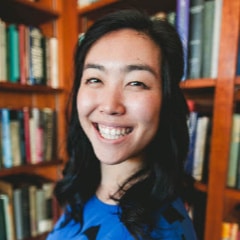
Katherine Soojin Cho is a Ph.D. Candidate in the Higher Education and Organizational Change program at the University of California, Los Angeles’s Graduate School of Education and Information Studies. Her background as both an administrator and student activist informs her interest in scrutinizing institutional accountability. Her dissertation centers on how colleges and universities respond to student activism in opposition to the experiences of racism, marginality, discrimination, bias, and violence Students of Color face on their campuses. Concurrently, Katherine is a research analyst at the Higher Education Research Institute, examining the ways campuses support underrepresented and underserved students to successfully graduate. Prior to her doctoral studies, Katherine was a higher education administrator, managing several student development and civic leadership programs for a university in New York. She received an M.A. in Sociology & Education from Teachers College, Columbia University and a B.A. in Public Policy Studies from Duke University.
How Did We Get Here? Actually, We’ve Always Been: Exploring Institutional Responses to Campus Racism and Student Activism
Student activism for racial justice is not new. Students protested in the 1960s, the 1980s, and most recently in the 2010s with #BlackLivesMatter demonstrations on college campuses. Yet, the cyclical demands from decade to decade, especially those made by Student-Activists of Color regarding racism, discrimination, and bias on campus suggest something is not working. This study flips the current framing of how student activism helps advance institutional change on college campuses, and instead asks about the reverse relationship: what are the patterns, themes, tactics, and ways colleges and universities respond to student activism and campus racism?
Using Institutional Response Framework, this mixed-methods comparative case study examines the relationships between students, their college campuses, and how change can occur. More specifically, this research employs document collection, student and administrator interviews, and multidimensional scaling to interrogate the power structures and external pressures behind how administrative decisions are made and how these responses affect the concerns Student-Activists of Color voice in opposition. As colleges and universities continue to contend with racism, multiple pressures, and student demands to do better (rightfully so), this study serves not as an indictment of my past self or fellow administrators, but rather as a call to action with language and tools to facilitate more productive, constructive conversations and steps to address the racism so prevalent and embedded within college campuses.
Elise Dizon-Ross, Stanford University
Elise Dizon-Ross is a Ph.D. candidate in Economics of Education at the Stanford Graduate School of Education. She is a member of the Center for Educational Policy Analysis at Stanford, as well as an IES Fellow and a recipient of the Stanford Graduate Fellowship. Her research uses quantitative methods to study the impacts of economic inequality and educational and social policies on student outcomes and on the education sector more broadly. She is particularly interested in examining the intersection of local economic inequality and gaps in educational opportunities for disadvantaged communities. Her current projects investigate the effects of housing and regional affordability on students, teachers, and schools. Prior to beginning her doctoral studies, Elise worked with multiple nonprofit and public sector organizations to increase educational opportunities for students, focusing on areas such as chronic absenteeism, out-of-school-time learning, and the implementation of transitional kindergarten. She holds an M.A. and a B.A. in Economics from Stanford University, and an M.P.P. from the Goldman School of Public Policy at U.C. Berkeley.
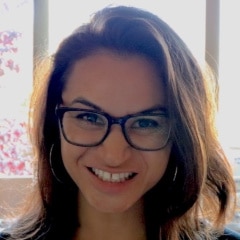
The Effects of Low-Income Housing Development on School Segregation
The growing shortage of affordable housing throughout the U.S. has drawn increased scrutiny toward housing policy and in particular, the federal government’s primary tool for incentivizing low-income housing development, the Low-Income Housing Tax Credit (LIHTC). In my dissertation, I consider the underexplored question of how the LIHTC program, which has helped fund nearly 3 million rental units since 1987, has affected schools. Specifically, I examine the impact of LIHTC-funded housing projects on the racial and socioeconomic composition of nearby public schools in metropolitan areas nationwide. Economic and sociological theory suggest that there are multiple potential hypotheses regarding the housing projects’ effects. One hypothesis is that such development could cause increased racial segregation and concentrated disadvantage, while another hypothesis suggests that LIHTC development could actually be a tool for increasing school diversity. To assess which theoretical outcome applies, I estimate the causal effects of low-income housing on the composition of neighborhood schools using a regression discontinuity design that leverages a discontinuity in the tax incentive structure, resulting in quasi-random variation in where LIHTC housing was built. My research will contribute to the existing literature on the effects of affordable housing programs, as well as build upon prior research on the drivers of school segregation and de-segregation and their relationship to patterns of residential location.
Adam Edgerton, University of Pennsylvania

Adam Kirk Edgerton is a Ph.D. candidate in Education Policy at the University of Pennsylvania. He spent seven years working as a public high school English teacher in Lawrence, Massachusetts, as a TRIO Upward Bound director for low-income, first-generation students, and as a consultant for private high schools in mainland China. These diverse work experiences lead him to research the major controversies that he directly experienced: standards-based reform, accountability policies, and collective bargaining rights.
As a researcher at the IES-funded national Center on Standards, Alignment, Instruction and Learning (c-sail.org), Adam has lead-authored papers in AERA Open, Teachers College Record, and the American Journal of Education and co-authored a feature article in Educational Researcher. Adam has also published essays in national media outlets such as The Chronicle for Higher Education, Education Week, and The Huffington Post, including “Why I Quit Teaching.” This op-ed started a sub-genre of public teacher resignation letters.
Adam’s dissertation research constructs a unique database of teacher contracts across Pennsylvania. Using quasi-experimental methods, he examines the relationships among key contract parameters and student achievement and graduation rates. He employs both quantitative and qualitative methods and aims to bridge disciplinary divides across his work. Adam earned his B.A. in English and Creative Writing at the University of North Carolina at Chapel Hill and his Ed.M. in Teaching and Curriculum from the Harvard Graduate School of Education.
Worth the Partisan Political Battle? Teachers’ Collective Bargaining Agreements and Student Achievement
Popular rhetoric pits teachers’ unions vested interests against those of students and families. This presumption, however, has not been empirically tested in the state of Pennsylvania. By constructing a unique database of contractual items for the 2015-2016 school year across all Pennsylvania school districts, my dissertation examines a) variation in these items, b) partisan political predictors for these items, and c) relationships to student achievement and graduation rates. My preliminary analysis, using geospatial techniques, finds a negative relationship between the percentage of registered Republicans in a district and the strength of the contract. I also find that there is a significant and positive relationship between Republican school boards and math achievement in grades 3-8, grade 10, and in high school biology. This relationship is much smaller in English language arts (ELA), and this pattern mirrors national rhetoric about the greater importance of STEM education compared to the liberal arts.
Using quasi-experimental methods, I find significant positive estimates of certain contract items on students’ math achievement in grades 3-8, and a significant negative estimate of these same items on graduation rates. These results suggest that subject-area and grade-level differentiation in contracts might help recruit teachers for hard-to-staff positions, particularly in math and science. It also suggests that Republican school board members may emphasize STEM in line with concerns about future earnings and job opportunities.
Amelia Farid, University of California, Berkeley
Amelia Farid is a doctoral candidate in the Graduate Group in Science and Mathematics Education (SESAME) at the University of California, Berkeley. Her research centers on reconciling dichotomies – both theoretical and pedagogical – between mathematics learning as engagement in disciplinary practices (such as proving, problem solving, and defining) and mathematics learning as developing conceptual understanding of rich content. Taking a design-based research approach, her dissertation uses both qualitative and quantitative methods to explore the ways in which mathematical practices of constructing, refining, and using definitions can be leveraged to develop content knowledge of fraction arithmetic, and vice versa. Her work is informed by her experience teaching mathematics at the secondary and tertiary levels, in both formal and informal settings in China, Colombia, and the United States. She has also contributed to the development of robust mathematics curricula aimed at the progress of rural communities in Latin America with the Foundation for the Application and Teaching of the Sciences (FUNDAEC). As part of her dissertation work, she has mentored a number of undergraduate researchers in educational research theory and methodology. Amelia holds a B.A. in mathematics from Columbia University and an M.A. in mathematics from the University of California, Berkeley.
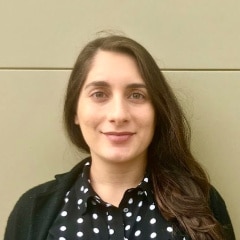
Relations between Disciplinary Practices and Conceptual Understanding in Mathematics: Leveraging Definitional Practices to Support Students’ Fraction Understanding
Student understanding of arithmetical operations with fractions is foundational to success in mathematics, yet the domain is notoriously hard-to-learn and hard to teach. At the same time, documents like the Common Core State Standards in Mathematics point to student engagement in disciplinary practices as important components of learning. I argue that students may benefit from engaging with disciplinary practices, like constructing, refining and using definitions of foundational mathematical ideas, toward conceptual understanding and vice versa. In my dissertation research, I use a design-based research approach to support students in a productive dialectic between their development of mathematical practices of defining and their development of conceptual understanding of fraction arithmetic. To understand this dialectic, I study and contrast 9th grade and undergraduate students’ participation in an intervention in which they posit and refine of mathematical definitions related to fractions. Mixed methods analyses aim to illuminate the micro-processes by which conceptual understanding and disciplinary practices mutually support each other in student activity, as well as to uncover the effects of the intervention, both on students’ conceptual understanding and definitional practice. Beyond contributing to productive instructional approaches for developing conceptual understanding of a critical and foundational mathematical domain, the research will help us better understand the coherence between mathematical content and practice goals — goals that are emphasized but often treated as distinct in instructional standards and educational research.
Lily Fesler, Stanford University
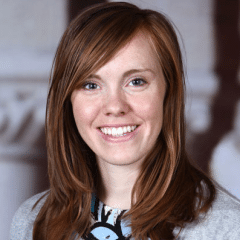
Lily Fesler is a doctoral candidate in economics of education at the Stanford Graduate School of Education. Her research focuses on inequality in access to higher education, and how students’ postsecondary choices are influenced by information about the college application process, personal preferences, and various programs and policies. She uses text-as-data and machine learning techniques to characterize students’ experiences navigating the college application process, and quasi-experimental techniques to identify the causal effects of postsecondary access programs. She has served as a teaching assistant for courses on applied quasi-experimental methods in education and founded the student group Computational Text Analysis in the Social Sciences at Stanford. She is an Institute of Education Sciences (IES) Fellow and a Stanford Graduate Fellow, and she received her MA in economics at Stanford and her BA in economics from Wesleyan University.
Unpacking the Nudge: How Student Respond to Assistance from Remote College Counselors
I use text-as-data techniques to study the ways in which remote college counselors can successfully nudge forward low- and middle-income students during the college application process. Using two-way text messaging data between 15,000 high school seniors and their remote college counselors, I measure if and how students make progress in their college application during each of their interactions with their counselors. In particular, I study whether students make progress in terms of constructing their college list, submitting their college applications, filling out their financial aid applications, finding and understanding their financial aid offers, and completing any necessary summer steps (like signing up for orientation and taking any necessary placement tests) within each interaction. I consider students to have been successfully nudged forward if they considered changing their college list, learned new information about how to navigate the college application process (e.g. had a question answered about their financial aid offer), or were reminded to take a step that they had not yet taken (e.g. were reminded to finish their incomplete FAFSA). I manually code a subset of interactions, then use supervised machine learning techniques to predict the codes for the remaining interactions. In addition to measuring whether remote counselors can help students progress in some parts of their college applications more frequently than others, I also measure whether these frequencies vary by student and high school characteristics.
Michael Glass, Princeton University
Mike Glass is a Ph.D. candidate in the Department of History at Princeton University, where he studies twentieth century United States urban, education, and political history. His research explores the history of educational inequality by focusing on the relationship between real estate, municipal debt, property taxation, and politics. His previous work has been published in the Journal of Urban History and The Gotham Center for New York City History. At Princeton, Mike has taught a community college course at the Southwoods State Prison through Princeton’s Prison Teaching Initiative, precepted for undergraduate courses, and contributed to the Princeton and Slavery Project. As a Woodrow Wilson Scholar Fellow, he also participates in an interdisciplinary seminar series. Prior to graduate school, Mike worked as a high school teacher for seven years in New York City public schools, where he taught United States and global history. He holds a B.A. in Sociology from the University of Chicago, an M.S. in Education from the City College of New York, and an M.A. in history from Hunter College.

Schooling Suburbia: The Politics of School Finance in Postwar Long Island
Schooling Suburbia explores the politics of school finance in post-World War II Long Island. It analyzes the relationship between public education, property markets, and state and local politics by following the money in seven school districts. The study is divided into two parts. The first half uncovers the source of educational inequality among these districts by examining how various institutions—such as federal housing agencies, village zoning boards, public housing authorities, real estate developers, financial lenders, and commercial enterprises—shaped the educational landscape. These chapters show that, because school funding depended on the property tax, the composition of the tax base and the drawing of the color line in each district set into place durable inequalities that compounded over time. The second half of the dissertation assesses several political campaigns when people directly challenged these inequalities: grassroots school desegregation movements, legislative reforms of state aid, and litigation efforts that briefly overturned the property-tax basis of school funding throughout the state of New York. By revealing the origins of wealth disparities and examining the political conflicts they provoked, this study offers the first comprehensive history of suburban educational inequality.
Beth Hart, University of California, Davis

Beth Ann Hart is a Ph.D. Candidate in Sociology at the University of California, Davis and a fellow at the UC Davis Center for Poverty Research and the UC Riverside Blum Initiative on Global and Regional Poverty. Her research examines the question: why do so many students who begin community college leave without a credential? Beth draws on a variety of qualitative methods and theories about precarity, poverty, and emerging adulthood to understand students’ lives outside college and the barriers they face to upward mobility. Her work has been featured in Teachers College Record and Social Service Review. Beth attended Berkeley City College before transferring to UC Santa Cruz, where she earned a B.A. in Psychology summa cum laude.
On the Verge: College Life in an Era of Precarity
Community colleges are poised to reduce income inequality, yet few students complete community college credentials or transfer to four-year colleges and universities. An abundance of research describes how on-campus experiences shape completion, but this research fails to account for the role of students’ external obligations in inhibiting college success. How do students, who need to complete college to earn decent wages, square their higher education goals with work, family, and financial obligations? This longitudinal qualitative study draws on 120 interviews conducted with 30 community college students over two years to investigate how students cope with and respond to external obligations while in college. Drawing on theories of precarity and instability, I argue that nonacademic experiences are key to understanding college completion. I find that instability is a fundamental feature in students’ nonacademic experiences and how students respond to uncertainty differs by race, social class, gender, and the types of obligations they must manage while in college. These different strategies and practices often result in unequal outcomes, including course failure and withdrawal, stymied academic progress, and dropout, that reproduce social stratification. In building this analysis, I extend and build theories of college completion and 21st century precariousness, illustrating how students cope and come to grips with the increasing precarity of their lives.
Wintre Foxworth Johnson, University of Pennsylvania
Wintre Foxworth Johnson is a Ph.D. candidate in Reading/Writing/Literacy at the University of Pennsylvania Graduate School of Education. Johnson was a prekindergarten and kindergarten teacher prior to pursuing doctoral studies. Her research and scholarship aim to document the lived experiences and complex, emergent literate practices of young children of color, uniting three strands of inquiry: literacy learning and expression among children of color; young children’s racialized experiences in and out of schools; and the informal and formal socialization of children and youth of color in urban contexts. Through a series of after-school literacy circles and parent, teacher, and principal interviews, her dissertation investigates the sociopolitical knowledge young African American children possess regarding society and the literacy practices upon which they draw to articulate and represent that knowledge. Johnson holds a B.A. with high distinction in African American and African Studies and a B.A. in Government from the University of Virginia, where she completed a thesis examining how the racial makeup and organizational dynamics of domestic work in Salvador da Bahia, Brazil served as a challenge to the racial democracy myth. Johnson is a 2018-2020 fellow in the National Council of Teachers of English (NCTE) Cultivating New Voices Among Scholars of Color Program.
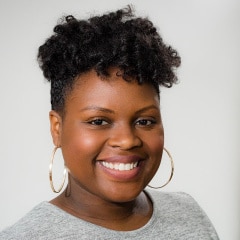
Examining the Racial Awareness and Literate Meaning Making Practices of First Grade African American Children in an Urban Community School
Issues concerning race and racism often are considered too difficult for young children to comprehend. Underlying this perspective is an assumption that there is a common lived experience for young children of all backgrounds, an idea rooted in a time when young children were less likely than the present to be exposed to the ubiquitous, technological advances that make the news so much a part of their daily experiences. While there are some universal aspects of childhood that connect children of all backgrounds, young children of color experience childhood differently as they come of age. Few empirical studies on early racial awareness have exclusively examined African American children’s perspectives, a group in the U.S. whose contemporary social location and historical experiences of marginalization enable them to form and offer distinct insights. Focused on five African American first-graders enrolled in an urban independent, community school, this qualitative inquiry investigates what children, ages six and seven, understand about contemporary and historical racialized circumstances, the socialization sources and messages upon which they draw, and their meaning-making regarding race and structural inequalities through multiple literacy practices. Grounded in sociocultural and early literacy studies and developmental science on young children’s emerging knowledge and identities, this study demonstrates how young African American children use literacy to make meaning about social stratification across time, thereby illuminating the critical, nuanced, and racialized knowing that young children are often assumed not to possess and the stories, experiences, and perspectives they offer when provided a space for expression.
Patrick Lewis, University of Chicago
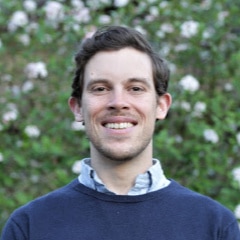
Patrick Lewis is a Ph.D. Candidate in the Department of Anthropology at the University of Chicago. His research bridges linguistic and social-cultural anthropology and examines the political-economy of language, higher education and youth in Turkey and North Kurdistan. Patrick studied and worked in Turkey as a teacher and translator for a half-decade between 2008 and 2013. In 2012, he completed an MA at Sabanci University, where he conducted an ethnographic research project on Kurdish Language organizations and educators in Istanbul. Patrick came to the University of Chicago as a Ph.D. student in 2013, returning to Turkey every summer to study Turkish, Ottoman and Kurdish with the support of FLAS Fellowships. Between 2017-2018, he completed 18 months of archival and ethnographic fieldwork in Mardin and Istanbul on youth public formation and the creation of a new system of mass higher education with the support of a Fulbright-Hays DDRA Fellowship.
Publics of Value: Youth, Language, and Higher Education in Turkey
In 2010, the Turkish state reversed decades-old language policy concerning Turkey’s large Kurdish minority and opened the first academic institution in the country providing state-recognized degrees in Kurdish-language education at Artuklu University in Mardin. Over the next five years, similar programs were founded at several other newly opened universities in Kurdish-speaking regions. These programs were intended to train thousands of new Kurdish-language teachers to work in state primary and secondary schools. However, since the collapse of the peace process in 2015, new appointments of Kurdish-language teachers have stalled, and thousands of graduates have been left jobless. Despite severe political and economic pressures, however, many youths continue their advocacy around Kurdish-language education, and insist on writing, teaching and publishing in Kurdish. Based on 18-months of ethnographic research between 2017-2018 with Kurdish students and Kurdish-language activists and educators in Southeastern Turkey and Istanbul, my project investigates language practices and public formation among Kurdish youth at Turkish state universities. It interrogates the role which higher education plays in inculcating different ideologies of language among Kurdish youth; and it examines how broader shifts in the value regimes governing language use in Turkey are affecting youths’ mobilization into multiple, competing (and contested) social value projects. It draws on a wide body of literature on youth, language, higher education, the state, publics and value to examine how Kurdish youth come to valorize language in relation not only to state institutions, labor markets and the Kurdish movement, but to their peers, families, communities and wider youth publics.
Thomas Loyd, Georgetown University
Thom Loyd is a Ph.D. candidate in the History Department at Georgetown University. He holds an M.St. in Modern British and European History from the University of Oxford, and a BA in History from the University of Bristol. His research interests include the history of higher education, the global Cold War, and socialist internationalism. His dissertation focuses on the Soviet provision of higher education to Africans in the context of the growth of international education after 1945. Research for the dissertation was made possible by support from the Social
Science Research Council’s International Dissertation Research Fellowship, with funds provided by the Andrew W. Mellon Foundation, as well as from the Harry S. Truman Good Neighbor Foundation and the Cosmos Club Foundation.
As well as studying international education, Thom also practices it; he grew up in north east England and moved to the US to start his Ph.D. in 2014. Prior to this, he worked at Durham University in their Access and Student Recruitment team, and was also involved in widening participation schemes while doing his undergraduate and master’s degrees. This included giving talks at high schools across the UK about applying to competitive universities, and helping to supervise summer schools for local students from various backgrounds underrepresented in higher education.
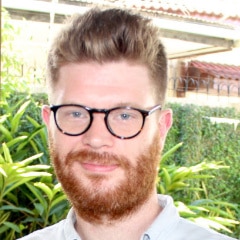
Black in the USSR: African students, Soviet empire, and the politics of global education during the Cold War, 1956-1976
For a decade before the U.S. introduced affirmative action into college admissions, the State Department had run a scholarship program for black Africans. Unlike the more prominent East African Airlift, which sponsored students on merit and was funded privately, the State Department program had only one criteria: the students must previously have studied at a Soviet university.
This dissertation examines the Soviet training of black Africans between 1956 to 1976, a crucial period which saw Pan-Africanism reach its heights, some of the biggest flashpoints in the Cold War, and the prodigious growth of higher education globally. By the end of the 1970s, tens of thousands of Africans were studying in universities and institutes across the Soviet Union. The dissertation examines both the effect of this training on the Soviet Union domestically, and its international implications. As with the State Department program, the extension of scholarships to African students by the Soviet Union had far-reaching consequences internationally, as well. As such, the dissertation investigates changing understandings of the university in the post-war period: what and who was a university for? And how did the Soviet-African connection influence these changing conceptions? Research for the dissertation has been undertaken in over thirty archives across the US, Western Europe, the former Soviet Union, Ghana, and Tanzania.
Joseph Maurer, University of Chicago
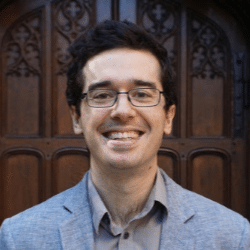
Joe Maurer is a doctoral candidate in Ethnomusicology at the University of Chicago. His current research examines the social and structural dynamics of several Chicago-based youth music programs that teach mariachi, p’ungmul, and Mexican sones. His other research projects focus on U.S.-based political music and New England maritime music revivalism. Joe’s teaching encourages undergraduates to engage critically with aural, social, and cultural aspects of American and world music traditions. In the nonprofit sector, he does research, strategic planning, and program evaluation for Chicago arts education organizations. Prior to his doctoral studies, Joe worked with high school students as a college access counselor in both in-school and nonprofit contexts in Providence, RI and Boston, MA. He earned a BA in Public Policy, Education Studies, and Music from Brown University.
Learning and Teaching Musical Heritage in Immigrant Chicago
This project explains the role that out-of-school music learning programs play in the formation of immigrant and 2nd-generation youth as members of social, ethnic, and artistic communities. Drawing on participant observation and interviews with students, teachers, parents, and nonprofit administrators in Chicago, it describes how these music programs function as discursive pedagogical spaces within which young Chicagoans construct ideas and beliefs about aesthetics, heritage, community belonging, and their own subjectivity. This project addresses some of the lacunae between musicology and education studies, but it also proposes approaches to understanding out-of-school music learning that may be relevant to teachers, administrators, policymakers, and funders in the arts learning sector.
My qualitative data comes from observation, participant observation, and semi-structured interviews at three Chicago-based music learning programs. Each of these organizations—the Chicago Mariachi Project, HANA Center, and Sones de México Ensemble—is grounded in a particular Chicago immigrant context, and each brings a different pedagogical and organizational approach to their youth education work. By rigorously combining methods and theory drawn from ethnomusicology, education, sociology, and American/Ethnic studies, this project builds a comprehensive understanding of a crucial unexplored space of immigrant and children-of-immigrant youth development. This understanding will add new dimensions to studies of immigration in these fields as well as explain how changes in public and nonprofit arts education in the 21st century are interacting with recent immigration trends to shape urban youth development.
Jie Min, Rice University
Jie Min is a Ph.D. candidate in the Department of Sociology at Rice University. Her interests include education, race and ethnic relations, immigration, and urban sociology. Her research attempts to understand the mechanisms causing educational inequality as well as to seek strategies to ameliorate academic achievement gaps. Jie Min is also affiliated with the Houston Education Research Consortium (HERC), a Research-Practice Partnership between Rice and eleven Houston area school districts. In HERC, she has investigated crucial questions grounded in the needs of education practitioners, such as patterns and consequences of student mobility for educational attainment, and predictors and outcomes of long-term English language learners. She has also worked on a project focusing on the education heterogeneity among Vietnamese Americans in the United States. She has worked with both nationally representative data as well as regional administrative and assessment data provided by partner school districts. Her dissertation investigates summer learning in the seventh largest public school district in the United States. In the long term, she hopes to “translate” her research into products that can easily be understood by educational policymakers, principals, teachers, and parents, so that educational practitioners could make more effective use of research evidence.

Neighborhood and Summer School Effects on Summer Learning
Educational achievement gaps change by season. While students from different class backgrounds learn at similar rates when school is in session, over the summer class-based achievement gaps grow the fastest. The story is different for race-based achievement gaps. Black/white achievement gaps tend to widen more during the school year than over the summer. However, researchers have largely overlooked Latinos and Asians, which are currently the largest and fastest-growing immigrant groups in the United States respectively, and they have not considered the role of neighborhoods or summer school programs. Can they mitigate the summer learning experiences of minority students? Using data from the Houston Independent School District (HISD), this dissertation will: (1) compare summer learning trends across all four large racial/ethnic groups—white, black, Latino, Asian—with special attention to immigrant children who are English Language Learners; (2) investigate the neighborhood mechanisms that influence students’ summer learning experiences and examine whether neighborhood effects vary with the season; and (3) evaluate the effectiveness of summer programs.
Timothy P. Monreal, University of South Carolina
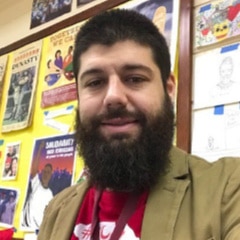
Timothy P. Monreal is a Ph.D. candidate in Foundations of Education at the University of South Carolina. He holds a B.A. in Political Science from U.C. Santa Barbara and an M.A. in Secondary Education from Loyola Marymount University. Tim has been a middle school teacher for the past 11 years, mostly in California and more recently in South Carolina. His research interests include the New Latinx/Nuevo South, Latinx teachers in the Southeast, social studies teaching, and teacher subjectivity. His dissertation investigates Latinx teacher identity/subject formation in the spaces of the Southeast. In addition to a number of book chapters, Tim’s work has appeared in journals such as Educational Policy, Latino Studies, Current Issues in Comparative Education, Journal of Latinos and Education, and Middle Grades Review.
Tim is active in the community working on the leadership team at SC United with Immigrants and as an organizer/area representative for South Carolina for Education (SCforED) in addition to many other committees and task forces. He works on the American Educational Studies Association Graduate Coalition, launching a podcast and peer-reviewed blog for the group. Tim was recognized with a 2019 University of South Carolina Stand Up Hero Award and received the 2018 Outstanding Doctoral Student in Educational Studies at University of South Carolina. Tim is the eldest of nine children and was raised in California’s Central Valley. His proudest accomplishment is being dad to two little kiddos and husband to his wife, Liz. He enjoys baseball, running, and falling off ocean waves.
Hecho en South Carolina: Latinx Teachers Made In, and (Re)making, the
NuevoSouth
The “New Latinx South” describes recent demographic shifts that make the United States South home to the fasting growing Latinx population in the country. To get an idea of this change, South Carolina where I work(ed) as a researcher, doctoral candidate, and middle school teacher, had a 172% increase in its Hispanic population from 2000-2014 (Stepler & Lopez, 2016). Despite the resulting increase of Latinx students in the South, K-12 Latinx teachers are severely underrepresented in Southern schools. For example, in South Carolina only 1% of all teachers identify as Hispanic. Yet while there are burgeoning, and separate, lines of research about the shifting demographics in the U.S South generally, as well a lack of teacher representation nationally, there remains a dearth of research on how these two phenomenons intersect.
Therefore, the dissertation addresses this gap in our understanding by using a spatial-poststructual lens to qualitatively investigate the identity/subject formation of Latinx K-12 teachers in one Southern state, South Carolina. In order to examine teacher’s micro-level experiences data was collected with interviews rooted in ecomapping and photovoice methods. Findings provide insight into the experiences and subject formation of Latinx teachers in South Carolina so that stakeholders might better recruit, retain, and support teachers in key areas of need. The research challenges both practitioners and academic researchers to think about how Latinx teachers are simultaneously made in, and are (re)making, the New Latinx/Nuevo South while also laying the foundation for further research about Latinx K-12 teachers in the South.
Brittany Murray, University of North Carolina at Chapel Hill
Brittany Murray is a Ph.D. candidate in the School of Education at the University of North Carolina at Chapel Hill. Her research examines the relationship between social and political processes in schools and educational inequality. She uses mixed methods to investigate the role of families and communities in shaping policy, resources, and learning opportunities for students. Her dissertation research combines tax data on school-based nonprofits, specifically parent-teacher organizations (PTOs), with school administrative data and stakeholder interviews to learn about the implications of collective forms of parent involvement for educational equity.
Brittany has a sustained interest in transforming the ways researchers, practitioners, and communities use data to gain new insights into the social context of schools and neighborhoods. She is a recipient of a Russell Sage Foundation grant to pair PTO tax data with schools nationwide and investigate their relationship to district-level achievement gaps available in the Stanford Education Data Archive. Prior to entering graduate school, Brittany worked at the Urban Institute where her experiences engaging in community-based participatory research and survey administration culminated in a strategy to engage stakeholders in a data validation process known as “Data Walks.” These walks were designed to support researchers’ ability to interpret survey results while also encouraging collective action among residents, service providers, and policymakers to identify and pose solutions to their most pervasive place-based challenges. Similarly, Brittany hopes to establish partnerships with parents, school boards, and PTOs to create more inclusive access to data and decision-making processes within schools and districts.
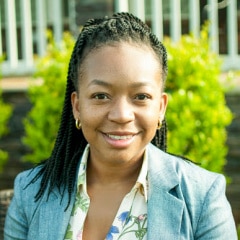
Reframing Parent Involvement: PTOs and the Impact of Parent Collectives on Educational Opportunity
Despite decades of education policies directed toward increasing minority parent involvement, white parents remain more involved and reap more educational benefits from their involvement than any other racial/ethnic group. In attempting to explain these patterns, scholars have primarily conceptualized parent involvement individually without measuring the impact of other children’s parents in the educational process. My dissertation examines how collective processes among parents in school-based associations such as parent-teachers organizations (PTOs) contribute to persistent inequalities in relationships between families and schools and how those unequal relationships reinforce larger patterns of race- and class-based inequality in students’ experiences in school. This mixed-methods study leverages qualitative data from observations of PTO meetings and semi-structured interviews with parents, teachers, and administrators nine NC elementary schools. These data are used to complement a unique quantitative data resource: Internal Revenue Service filings on North Carolina PTOs paired with administrative data on the schools they support. I ask how collective processes among parents in schools explain racial differences in individual parent involvement and how white parents mobilize collectively to alter the distribution of within-school resources and learning opportunities. Collectively, the contribution from these papers may advance the ways scholars operationalize parent involvement in schools by shifting from an individual to a collective framework in analyzing the predictors and implications of parent-school partnerships.
Megan Nanney, Virginia Polytechnic Institute and State University

Megan (Maggie) Nanney is a Ph.D. candidate in the Departments of Sociology and Women’s and Gender Studies at Virginia Tech. Maggie earned their MS in Sociology also from Virginia Tech and their BA in Sociology and the Study of Women and Gender from Smith College. Maggie’s work focuses on diversity and inclusion and can be found in Gender & Society, Advances in Gender Research, Research in Higher Education, Journal of LGBT Youth, and forthcoming in various edited volumes and journals. Maggie’s dissertation, entitled “Open Gates, Broken Promises: Inclusion Policies, Transfeminism, and Transgender Student Experiences at Gender Selective Women’s Colleges” questions how seemingly inclusive transgender admissions policies at women’s colleges construct exclusive discourses and experiences for non-normative gender expression and embodiment, as complicated by the intersections of race, class, ability, and sexuality. In addition to the NAEd/Spencer Foundation Fellowship, Maggie’s work has received financial support from the National Science Foundation Doctoral Dissertation Improvement Grant (Award #1904304). Maggie serves as the Co-Chair for the Sociologists for Trans Justice Advancing Trans, Non-binary, and Intersex Scholarship Committee and authored the 2018 edition of the #TransJusticeSyllabus. Maggie previosuly served as a Research Associate at the Five College Women’s Studies Research Center, and currently consults for the Campaign for Southern Equality’s Southern LGBTQ+ Health Survey.
Gendered Possibilities in Higher Education: Transfeminism, Admissions Policies, and Student Experiences at Women’s Colleges
Over the past two decades, postsecondary institutions have increasingly incorporated transgender inclusive language, policies, and facilities to address trans students’ poor health, grades, safety, and academic achievement. While such efforts have been heralded as an inclusive effort, little research has studied trans student experiences on campuses with such policies. My study remedies this gap through an ethnography examining the experiences of trans students at two women’s colleges for one academic year. Since 2013, twenty-three U.S. women’s colleges have adopted transgender admissions policies that outline varying biomedical, social, and legal criteria for who may apply to their institution to include trans women, men, and occasionally gender non-conforming students. Data for this research come from archival research on the histories of campus diversity, interviews with students, alumni, and staff/faculty/administration, and participant observation at campus events with transgender students throughout the academic year. The primary question this dissertation asks is: How are student’s academic and social experiences impacted by gendered policies? In answering this question, this research contributes to three research concerns: 1) educational outcomes beyond the gender binary; 2) transgender student experiences; and 3) transgender policy best practices. Results from this analysis extend educational research beyond binary examinations of gender to examine how even seemingly inclusive institutional policies may still exclude the most marginalized students. As such, this dissertation calls to think about diversity as product of postsecondary institutions; not simply in terms of the identities that are listed in nondiscrimination policies, but in the ways in which these polices are implemented.
Hannah Nieman, University of Washington
Hannah Nieman is a doctoral candidate in Teacher Quality & Teacher Education at the University of Washington, Seattle with a focus on Mathematics Education. Her research explores how systems of professional learning can be designed and facilitated to support meaningful teacher learning. She specifically investigates how professional learning can be designed and leveraged to disrupt systemic, harmful discourses about the mathematical capabilities of students ─ especially students from historically marginalized communities. Hannah’s current research is a part of a broader set of partnerships between universities and practitioners, including mathematics teachers, instructional coaches, principals, and district leaders. She sees collaboration between researchers and practitioners as central to improving mathematics teaching and learning. Hannah previously taught high school mathematics at an engineering-focused high school and has worked as an elementary and secondary mathematics teacher educator. She holds an M.Ed. in Curriculum & Instruction from the University of Washington and a B.S. in Industrial & Systems Engineering from Georgia Tech.
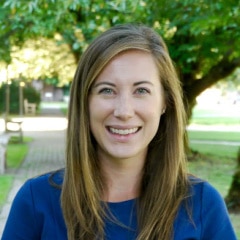
Supporting Teachers to See and Treat Students as Mathematically Capable: An Examination of School-embedded Professional Learning
My dissertation examines how the design and facilitation of school-embedded professional learning relate to teachers’ narratives about students’ mathematical capabilities and their instructional decisions in relation to particular students. Pervasive discourses about who is and is not capable of engaging in mathematics shape teachers’ instruction and therefore the opportunities students – especially students from historically marginalized communities – have to engage in mathematics. Narratives suggest, for example, that there is a racial hierarchy of ability with respect to mathematics or that poor children of color lack the ability to engage in mathematical practices such as modeling and abstraction. Because these harmful discourses are embedded in the systems surrounding classrooms, it is crucial that teachers engage in disrupting them collectively, in their daily work. Research indicates that school-embedded professional learning can support productive, shared discourses among groups of teachers about their students’ mathematical capabilities. However, there has been minimal attention to the design and facilitation of professional learning experiences that might support such development. In response, I am conducting a qualitative case study of a system of school-embedded professional learning in a middle school, which is a part of a broader partnership between universities and school districts. Data include observations of professional learning events, interviews with teachers, observations of facilitators’ planning for professional learning, and interviews with facilitators. The findings of my research will generate theory regarding the design and facilitation of professional learning in which teachers are supported to see and treat students as mathematically capable.
Mahasan Offutt-Chaney, University of California, Berkeley
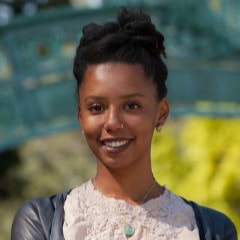
Mahasan Offutt-Chaney is a Ph.D. candidate in Education Policy at the University of California Berkeley. Her research agenda looks broadly at the historic nexus between Education, race and social policy. Her dissertation work uses archival methods to explore how educational elite, including federal policy makers use education and social policies to reproduce inequality by structuring practices that discipline and regulate over racialized poverty. Her previous works have looked at the ways contemporary education policy and urban school reform can be informed by historical perspectives on Black education. Prior to her doctoral studies she worked as a restorative justice coordinator at her alma mater, Berkeley High School. Mahasan received a M.S. in Education Policy from the University of Pennsylvania, and a B.A. in Ethnic Studies and Sociology from the University of California, Berkeley.
Discipline for the “Educationally Deprived”: ESEA and the Punitive Function of Federal Education Policy 1965-1998
Throughout their history, schools in the United States have served as both a primary mechanism for treating poverty and its problems (in lieu of more structural and redistributive programs), and also a key mechanism for regulating and governing over poor populations. By exploring the evolution of federal education policy and especially the progression of the nation’s largest anti-poverty education program, Title I of the Elementary and Secondary Education Act (1965), my project tracks how federal policy makers framed ideas about education, race, and urban poverty as they pursued federal education reform. Drawing on theories of poverty governance and social control, this study to traces school criminalization to the actions and beliefs of federal policy makers driving federal anti-poverty education reforms. I employ archival methods across federal and presidential archives to examine how federal policymakers’ ideas about educational opportunity and tougher school discipline practices changed across three eras: 1965-1969; 1980-1989; 1993-1998. These three eras are significant to both the punitive turn in US federal policy and are also critical moments in the expansion of the federal role in education reform. More than a history of US federal education policy, this study offers a historical perspective on how federal policy makers concomitantly framed ESEA and other education reforms as “opportunity” programs for the “culturally deprived” and those that could “discipline” poor Black students away from various forms of delinquency.
Ashlyn Pierson, Vanderbilt University
Ashlyn Pierson is a Ph.D. candidate in the Teaching and Learning Department of Vanderbilt University’sbPeabody College of Education and Human Development. Broadly, her research merges theory and practice by using design studies to explore the interplay between learning environments and scientific modeling practices. Based on her previous publications and presentations, she was invited to edit a special issue of Science & Education that considers the non-linear development of students’ sensemaking practices in science. Her dissertation builds on her previous work by exploring modeling as an opportunity to expand the range of modes privileged in science classrooms, bridging research about science learning, disciplinary practices, and linguistics. Her dissertation is a design study that aims to understand how emerging bilingual students participate in scientific modeling in a learning environment with rich multimodal resources. A central feature of the design is valuing and leveraging students’ everyday translanguaging practices while engaging students in activities that privilege unique modes for sensemaking and expression, including diagrammatic, physical, and computational modeling. At Vanderbilt, Ashlyn received the Bonsal Applied Education Research Award to support data collection for her dissertation. Her preliminary analysis of these data won the Best Student Paper Award from the Advanced Technologies for Learning/Learning Sciences Special Interest Group of the American Educational Research Association. Prior to Vanderbilt, Ashlyn worked as high school math and middle school science teacher in Nashville public schools. She holds an A.B. in Environmental Science and Public Policy from Duke University and an M.Ed. in Instructional Practice from Lipscomb University.
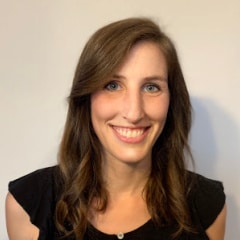
Modeling and Modes: Broadening Participation in Science Practices for Emerging Bilinguals
In professional and K-12 contexts, science practices integrate multiple modes for expression and sensemaking. Yet, verbal and written representations using academic English are often privileged over other modes in science education, particularly for emerging bilingual learners. This perspective stands in contrast to research that demonstrates that students use hybrid resources, including language, drawing, and gesture, to engage in complex and rigorous disciplinary thinking. This project posits that valuing and leveraging students’ everyday translanguaging practices within multimodal modeling activities will increase opportunities for expressing ideas within the classroom, shifting participation structures to increase opportunities for emerging bilingual students to take on powerful and agentive roles. This conjecture is tested in a five-cycle design study, operationalizing learning as students’ appropriation and productive transformation of modeling and translanguaging practices. Within a 9-week NGSS-aligned ecology unit, the design provides students with opportunities to reason about science and express their ideas across several testable multimodal representations, including diagrammatic, physical, and computational models. The analysis draws on methods for multimodal content analysis and methods for analyzing the development of practices and participation frameworks. This analysis bridges research from several fields, including English Learner education, linguistics, and science education, to consider how these perspectives inform each other and designs for science learning with emerging bilingual students. This study contributes an understanding of how emerging bilingual students participate in scientific modeling practices using rich multimodal resources, addressing the pressing need to broaden participation in science to communities of learners underrepresented in STEM.
Cynthia Pollard, Harvard University

Cynthia Pollard is a doctoral student in Human Development, Learning and Teaching at the Harvard Graduate School of Education. She is interested in the role that teachers and teaching play in reinforcing or challenging race- and class-based inequality in K – 12 classrooms. Her dissertation examines how teacher and student race—and the interaction between the two—affect instructional decision-making and student learning. Cynthia holds a bachelor’s degree from the University of California Los Angeles and a master’s degree from the Harvard Graduate School of Education. She previously taught elementary school in Los Angeles.
Teaching, Learning, and Race: Identifying the Mechanisms Underlying Own- and Other-race Teacher Effects
Over fifty years after the “The Coleman Report” revealed the extent of the disparity between the learning outcomes of students of color and their White peers, the racial achievement gap remains one of the most troubling issues in education. While educators, policymakers, and researchers continue to debate the causes and solutions to the gap, a growing collection of studies from educational economists has recently suggested that Black students learn at higher rates when they are taught by Black teachers. However, little research has explored what classroom mechanisms may be driving these effects. In my dissertation, I aim to help address this gap with two experimental studies that draw on the intersection of critical education theory and social psychology. The first study focuses on teachers, and tests whether and how their instructional decisions differ for Black versus White students, and whether this difference is related to implicit bias. The second study focuses on high school students, and tests whether and how their learning processes are affected when taught by an own- versus other-race teacher. Findings from these studies may together improve understanding of how teachers’ and students’ race affect teaching and learning, and what classrooms conditions are most conducive to the learning and motivation of students of color.
Samiha Rahman, University of Pennsylvania
Samiha Rahman is a Ph.D. candidate in Education, Culture, and Society at the University of Pennsylvania, with a joint candidacy in Africana Studies. Her research utilizes a transnational and intersectional approach to consider how race, religion, and migration affect equity and access for underserved and culturally diverse students across various geographical contexts. Throughout her research, Rahman examines how youth of color in the U.S. and on the African continent understand their identities, grapple with inequalities in their lives, and imagine engaging in activism to transform their societies. Rahman’s dissertation is an ethnographic study of the educational experiences and aspirations of African American Muslim youth pursuing Islamic education in Senegal and was funded by an award from Fulbright-Hays Doctoral Dissertation Research Abroad. Prior to beginning her doctoral studies, Rahman served as a middle school writing teacher in New York City and directed an afterschool program for youth in Philadelphia. Rahman received a B.A. in History and Ethnicity & Race Studies from Columbia University.
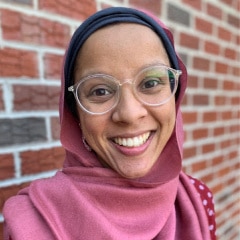
Black Muslim Freedom Dreams: Islamic Education, Migration, and Mobility in Senegal
This dissertation research draws upon ethnographic methods to answer a question of broad relevance for discussions of educational justice and equity: How do marginalized groups utilize transnational educational networks to actualize personal, familial, and community-wide transformation? It focuses on a community of African American Muslims whose daughters and sons migrate from urban centers in the U.S. to pursue Islamic education in Medina Baye, Senegal. Drawing upon fieldwork in Senegal and the U.S., the study investigates how young people experience their migration and education, and how these processes of geographic transition, life education, and religious knowledge shape their emerging identities, future aspirations, and engagement in the world. By following youth throughout their time in Medina Baye, I study their representations of the impact of migration and education on their everyday religious and racial subject formation, as well as their imagined future trajectories. This study provides a critical analysis of the politics of Muslim youth identity in the contemporary moment, thus offering a timely contribution to the growing educational research on Muslim youth. This study will offer insights about how this population and similar populations of students engage in the everyday experiences of learning in classrooms, and how K-12 classrooms and curriculum may become attuned to the intersectional experiences of Black Muslim students, in turn, creating learning environments that challenge anti-Blackness and Islamophobia. It also offers insights regarding the efficacy of Islamic education in fostering civic engagement and social mobility among urban youth of color.
Kimberly C. Ransom, University of Michigan
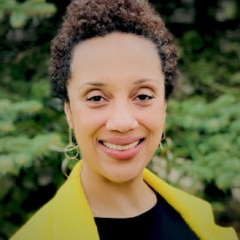
Kimberly C. Ransom is a Ph.D. Candidate in Educational Studies at the University of Michigan. Her scholarly interests are concerned with the social construction of Black childhood within education, overtime—which includes how Black childhood has been imagined or unimagined, historically, in and around schools.
Kimberly is also interested in using art and research to create public spaces that inspire dialog among communities and the academy. Currently, Kimberly and Rosenwald School alumni (who are participants of her dissertation study) are using art and research to co-create a community museum within the sole remaining Rosenwald Schoolhouse in Pickens County, Alabama.
Before joining Michigan, Kimberly was the founding director of the University of Chicago Collegiate Scholars Program (UCSP) from 2003-2014. During her time at UCSP, Kimberly designed and led CSP’s programs which helped over 500 Chicago Public School students gain admission to elite universities nationwide. She owes this success to foundational youth development positions held at Columbia College Chicago, and Elliott Donnelley Chicago Youth Center.
Kimberly has received several awards and fellowships for her creativity and leadership related to youth development which have included the New York University Women of Color Policy Fellowship (2010), the Chicago Community Trust Fellowship (2011), the University of Chicago Diversity Leadership Award (2013), UCEA Jackson Scholar (2015-2017), and the University of Michigan Public Scholarship Award (2018).
Kimberly holds degrees from Bradley University (B.S. Management), and DePaul University (M.A. English Literature). She’s a daughter of Chicago’s Southside, poet, spoken word artist, and mother of 13-year-old Ella the Great.
There Are Children Here: Examining Black Childhood in Rosenwald Schools of Pickens County Alabama (1940-1969)
Research examining education for Blacks across eras of slavery, Reconstruction, and Jim Crow have captured whites and Blacks competing interpretations of the warrant for and function of black education; or the conditions of schools and value of Black educators. Within these interpretations, Black children have either been implicitly present through whites and Blacks opposing versions of whether or not and for what purpose Blacks should be educated; or Black children have been present inasmuch as their presence provides a window into the conditions of schools or care of Black teachers. Yet, how Black children experienced childhood or articulated agency in schools is not apparent. Rather, whites and Blacks discussions have revealed an imagined Black child whose presence only becomes apparent insofar as whites and Blacks could conceive of Black education. Drawing from scholarship that asserts Black childhood has been unimagined due to their devalued position and disregard within the social conception of childhood, my dissertation examines what might be learned about the agency of Black children and the character of Black childhood in and around pre-Brown segregated schools if we foreground the vantage and perspectives of black children. Through ethnohistory, I examine archival sources, oral histories and material objects of once-children who attended Rosenwald Schools in Pickens County, Alabama (1940-1969). Foregrounding the perspectives and products of Black children, this study restores and expands understandings of the experiences and agency of Black children in and around Rosenwald Schools; and by implication, expands understandings of Black childhood in this space and time.
Josephine Relaford-Doyle, University of California, San Diego
Josephine Relaford-Doyle is a doctoral candidate in Cognitive Science at the University of California, San Diego. She is interested in mathematical certainty, justification, and the relationship between everyday experience and mathematical knowledge. Prior to her doctoral studies Josephine spent five years teaching high school mathematics as a Math for America Los Angeles fellow. In her current work she uses a variety of qualitative and quantitative methods to address questions about the nature of mathematics as a human conceptual system. Specifically, her research explores the extent to which mathematical concepts learned through everyday experience may deviate from formal mathematical definitions. By characterizing the nature of students’ pre-existing mathematical ideas, she hopes to help teachers build bridges to formally consistent mathematical conceptualizations in their students. She holds a BA in Cognitive Science from the University of California, Berkeley, where she was a Regents’ and Chancellor’s Scholar, and an MA in Education from Claremont Graduate University.
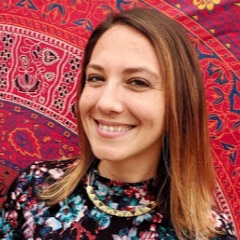
Exploring the Naturalness of Natural Numbers: Do Undergraduates’ Everyday Conceptualizations of Natural Number Match the Formal Characterization?
It is widely assumed that spontaneously-arising conceptualizations of natural number – those that develop without explicit mathematics instruction – match the formal characterization of natural number given in the Dedekind-Peano Axioms (e.g. Leslie, Gelman, & Gallistel, 2008; Carey, 2004; Rips, Bloomfield, & Asmuth, 2008). Specifically, it is assumed that fully-developed conceptualizations of natural number are characterized by knowledge of a starting value ‘one’ and understanding of the successor principle: that for any natural number n, the next natural number is given by n+1. In developmental psychology the assumption that spontaneously-arising conceptualizations of natural number match the formal characterization is taken as unproblematic and has not been subject to empirical investigation.
In this dissertation I seek to provide a more rigorous, thorough, and empirically-grounded characterization of spontaneously-arising natural number concepts. What do we know about natural number, without being explicitly taught? And to what extent are these conceptualizations consistent with the formal mathematical definition? In the four studies that comprise the dissertation I use an open-ended problem-solving task, number categorization task, number-line estimation task, and semi-structured interviews to explore undergraduates’ conceptualizations of natural number. By identifying specific ways in which spontaneously-arising conceptualizations of natural number may actually deviate from the formal mathematical definition, this dissertation will inform classroom instruction for concepts that build on the natural number system (for instance, mathematical induction). This project will also help teachers to make more accurate assumptions about students’ prior knowledge and design instructional experiences that effectively bridge between students’ everyday conceptualizations and formal mathematical knowledge.
Carly Robinson, Harvard University
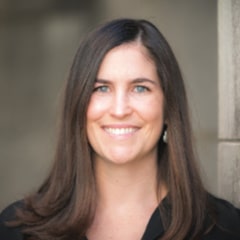
A Ph.D. Candidate at Harvard University’s Graduate School of Education, Carly Robinson’s research program sits at the intersection of social psychology, education, and policy. She focuses on shifting consequential beliefs within students’ support systems to mobilize behaviors that help students. For example, she has helped shift parental beliefs about what “average” attendance patterns look like to encourage parents to get their children to school more often. Currently, Carly is developing and testing interventions that target teachers’ and parents’ beliefs to improve student academic and motivational outcomes. These interventions shift teachers’ beliefs about their classroom practices to promote positive teacher-student relationships and parents’ beliefs about their role to help them more effectively engage in their children’s education. Additionally, her methodological work emphasizes open science practices, such as preregistering hypothesis-testing studies. Carly’s research has been covered by various news outlets including the New York Times, The Boston Globe, The Hechinger Report, and Education Week. She has also helped communicate her findings to a wide range of educator- and general-public audiences through writing for the Shanker Institute, EducationNext, Digital Promise, and appearances on podcasts such as CPRE’s Research Minutes and NPR’s Hidden Brain. A former New York City teacher, Carly received a B.A. in Psychology from Williams College and a Master’s in Applied Positive Psychology from the University of Pennsylvania.
I Believe I Can Connect: Improving Teacher-Student Relationships by Targeting Teachers’ Relational Self-Efficacy Beliefs
Unequivocally, students with more positive teacher-student relationships attain countless more desirable outcomes than students with less positive relationships. But, cultivating positive relationships is not easy. We all have worried we will not be able to connect with new people or get a relationship back on track after a conflict. Teacher-student relationships, in particular, pose unique challenges: teachers and students are assigned to each other more or less at random each year, their power differential is exacerbated by an age gap, and teachers have to evaluate students. Despite these challenges, teachers rarely receive training or support on how to cultivate positive teacher-student relationships. Thus, it is completely reasonable that teachers may lack confidence in their ability to develop and maintain these consequential relationships with students.
Research on self-efficacy shows that people’s beliefs about their ability in a domain impact their performance in that domain, yet no one has studied teachers’ confidence in their relationship building skills with students. In my dissertation, I introduce the concept of teachers’ relational self-efficacy, which I define as teachers’ beliefs about their capability to successfully form, maintain, and repair relationships with students. My theory-driven research addresses the policy- and practitioner-relevant question of how we can improve teacher-student relationships in the classroom. First, through a longitudinal study, I provide evidence that we can measure teachers’ relational self-efficacy and that it predicts subsequent teacher and student perceptions of the teacher-student relationship, as well as a constellation of other valued student outcomes. Then, I experimentally test an intervention that increases teachers’ relational self-efficacy and measure the downstream impact on teacher-student relationships and student achievement.
Marlén Rosas, University of Pennsylvania
Marlén Rosas is a historian of modern Latin America with a focus on Ecuador and the Andes. Her dissertation brings critical archive studies, oral history, and intellectual history approaches to the study of indigenous mobilizations in twentieth century Ecuador. It argues that indigenous activists remade literacy for themselves, expanding it to include radical forms of community-based archiving and the writing of history.
Marlén’s research on the history of indigenous politics in Latin America impressed upon her the radical political potential of community pedagogy. Her research interests are informed by her previous work mentoring minority high school students in New York City and her hometown of Newark, NJ. She came to recognize the profound limitations set on public high school students, a disenfranchised group that struggles to succeed in schools that lack resources and quality teaching. After graduating, she aims to develop an oral history course to reach diverse communities of students and explore the pedagogical significance of their world views. She hopes to foster dialogue with students and activists about how inequalities in access to education shape the knowledge produced and made available to the world.
Marlén is a co-founder of the Thinking Andean Studies Interdisciplinary Conference and the Seminario de Investigación Andina, two colloquiums that convene emerging and established scholars across disciplines whose research focuses on the Andean region. The aim is to develop a network of connecting scholarship with indigenous language initiatives and cultural advocates from the Andes and the U.S.
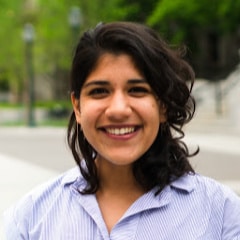
Indigenous Education and Power in Highlands Ecuador: Political Literacy, Archives, Authority
Confronting a military government that limited indigenous people’s political organizing, activists in Cayambe, Ecuador transformed themselves into archivists. By building a local knowledge base, they preserved the legacy that the generals in power sought to erase. They transformed what they knew about the decades of strikes, clandestine schools, petitions, and land takeovers into a publicly discussed historical narrative of twentieth-century indigenous history. The dissertation argues that beginning in the 1940s indigenous activists, some of whom were illiterate themselves, consciously turned literacy to political ends, thereby contesting the state’s monopoly on historical expertise. In makeshift classrooms, indigenous children learned to read and write in Spanish for the purpose of advancing land rights and pushing workers’ claims. The 1960s was a turning point in indigenous politics and Ecuadorian history, when activists used new recording technologies to set down their own understanding of the past, becoming protagonists in debates about literacy, and creating a pantheon of indigenous leaders whom subsequent generations claimed for divergent political and social agendas. They built a set of public representations in multiple formats, comprising various archives with more than a dozen narratives that offered to a new generation a pantheon of indigenous leaders that could be claimed for multiple political agendas. This work laid claim to new forms of political participation as alliances with the Left unraveled, and government functionaries became systematic about limiting activists’ power. Activists initiated a movement to reposition their community’s history of militant activism as an intellectual tool of political action.
Stephany RunningHawk Johnson, University of Oregon
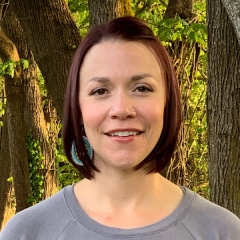
Stephany RunningHawk Johnson is currently a Ph.D. candidate in Critical and SocioCultural Studies at the University of Oregon. She is a descendant of the Oglala Lakota nation; her grandfather was enrolled at the Pine Ridge Reservation. Stephany earned a B.S. in Natural Resources from Oregon State University in 2003. She went on to an MEd from the University of Oregon in 2008 as part of the Sapsik’ʷałá program, and subsequently taught secondary math and science from 2008-2013, greatly enjoying her time as a classroom teacher while recognizing many of the issues her students experienced. Stephany went on to become a Professional Advisor for Earth and Environmental Sciences students at OSU from 2013-2016, seeing her students experience many of the same barriers and struggles as her secondary students had. Consequently, her research interests revolve around Indigenous students going to university and majoring in science fields, how the philosophy behind the way science is taught creates access or barriers for Indigenous and non-Indigenous students, Traditional Ecological Knowledge, and Indigenous feminisms. Stephany hopes to explore ways to decolonize the academy in order to create better learning experiences in science courses for Indigenous students, widen opportunities for self-determination among tribal communities, as well as to broaden the diversity of scientists in the workforce.
Centering the Indigenous in Science Education
The focus of my dissertation is to explore the limitations and possibilities of decolonizing science education in the academy. I have conducted interviews with 8 students in an Environmental Sciences degree program that is piloting a program to teach in both the Western way and in Indigenous ways with Indigenous instructors. I have also interviewed the instructors, both the Indigenous instructors as well as the non-Indigenous. I have observed classes and field work with these students and instructors, and am working to analyze the observations, as well as the student’s and instructor’s responses and reactions to the classes and interactions. In my analysis I will focus on how the participants define Indigenous science, the Indigenous methodologies used to teach science, and the tensions around non-Indigenous instructors teaching Indigenous students science. Through listening to these students, and analyzing what they, their instructors, and their elders have to say, I hope to inform educational policy and practice in the arenas of science and math education for Indigenous students. Perhaps we can begin to acknowledge and honor the knowledge and wisdom these students and communities bring to science education. In doing so, we must also acknowledge and address the inequality that is rampant in our current system of education. Changes in educational policy and practice that center Indigenous knowledges and ways of knowing can and will have a positive impact on the educational experience, classrooms, and schools of Indigenous students, and potentially for all students.
Ashley L. Smith-Purviance, University of Wisconsin-Madison
Ashley L. Smith-Purviance is a doctoral candidate in the department of Educational Policy Studies at the University of Wisconsin-Madison. Her research centers the experiences of young Black girls in two predominantly white, suburban middle schools and the development of an identity-based group space she created alongside the students and Black women community members called, Black Girl Magic. Ashley examines the discipline, punishment, and multiple forms of violence Black girls experience in schools. Her research has been informed by her work as a creator and co-facilitator developing curriculum with elementary and middle school Black girls, in support group spaces at various schools. She previously earned a M.S. in Higher Education from Syracuse University.
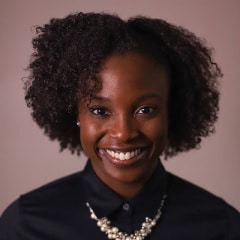
Everyday Anti-Black Girl Violence: Surviving and Learning Amidst Persistent School Violence Among Middle School Black Girls
Recent scholarship suggests there is consensus that something specific exists about Black girls’ schooling experiences that warrants necessary attention, yet scholars have not adequately explored how gendered anti-Black violence facing young Black girls should be addressed in theory and in practice. Furthermore, while educational scholarship prioritizes the experiences of high school girls, this study contributes to the underdeveloped literature on middle school Black girls’ understandings of their identities and schooling experiences. This qualitative study examines (1) the experiences of Black girls at two predominantly white, suburban middle schools, (2) analyzes systems of schooling and education as social institutions that perpetuate anti-Black violence against Black girls, and (3) how school staff, teachers, administrators and district leaders perceive Black girls and their experiences. Additionally, this research examines youth participant experiences in the Black Girl Magic group, a school-based, identity-centered group facilitated by Black women from the surrounding community, and explores how Black girls use the group to define Black girlhood, and resist and combat daily experiences of racism, sexism and anti-Blackness. Using narrative inquiry and critical ethnographic methods, this study interrogates how Black girls survive the daily racial trauma and anti-Black girl violence they face in predominantly white suburban schools, and challenges myths that greater educational opportunities exist in these contexts. This study warrants the necessary attention to Black girls’ voices, ensuring that they are uplifted in order to inform educational research at the intersection of race, gender, and school violence to support implications for more humanizing pedagogical practices in schools.
Moodjalin Sudcharoen, University of Chicago

Moodjalin Sudcharoen is a doctoral candidate in the Department of Anthropology, University of Chicago. Her research revolves around various topics of anthropological study including: childhood, migration, the politics of language learning, schooling, bureaucracy, and semiotics of personhood. Through her 18 months of ethnographic fieldwork, she investigates the politics of migrant schooling in Samutsakhon, an industrialized province in the central region of Thailand where a large number of migrants from Burma reside. Her study examines the relation of formal education to mobility through an analysis of institutional interventions into migrant childhood. The research focuses particularly on the social identifications of the migrant children in the schooling context as well as the links between the anticipated future of the nation and the various predictions of the (schooled and unschooled) migrant children’s futures. With a focus on the deployment of linguistic and semiotic resources in everyday life, her study explores the tension between the status of mobile populations and state-controlled schooling, as well as subtle oppression and everyday resistance. Moodjalin earned a B.A. in Humanities from Chulalongkorn University, Bangkok, and an M.A. in Asian Studies (Southeast Asia Program) at Cornell University.
Childhoods of Anticipation: Schooling for “Alien Children” and the Imagination of a Thai National Future
In this dissertation, I explore the political significance of the schooling of “alien children” (dek tangdao), a legal and popular term referring to the children of migrant workers from Burma, in rongrian wat, or (state-run) “temple schools” in Samutsakhon province, Thailand. There have been signs that the Thai state is grudgingly grappling with the permanent presence of migrants and seeks to shape the possible long-term settlement of the children. This includes recent state efforts to open a pathway to citizenship via education, which resulted in the 2017 legislation, allowing citizenship based on the children’s participation in Thai schooling possible for the first time. While this state effort appears to create a hospitable environment for undocumented migrants, it reveals tensions and paradoxes which need to be critically examined. My research will illuminate how the figuration of the “alien child” (dek tangdao) indexes the unstable meanings and paradoxical types of personhood that are constantly negotiated in schooling practice. I will also discuss how such figures mediated by different imaginations and temporalities, which point to an ambivalent stance towards the social position of migrant children, and the kind of futures they will bring to the Thai nation. Finally, my research will explore the intersection between education, citizenship, and nation by analyzing how the inclusion of “alien children” through educational qualifications challenges the notion of “nation as family,” which is the basis of Thai citizenship and identity, and how the Thai imagined community takes new shape when confronting transnationality.
Stephanie Toliver, University of Georgia
Stephanie Renee Toliver is a scholar in the Language and Literacy Education department at the University of Georgia. Born in Omaha, Nebraska and raised in New Castle, Pennsylvania, Stephanie began her undergraduate work at Florida Agricultural and Mechanical University (FAMU) and continued her studies in the English Education master’s program at Florida State University. Upon completion of her undergraduate degree, she was employed as an English and reading teacher for 9th and 10th grade students at Leon High School and then Miller Grove High School. Currently, Stephanie’s research is based in the critical tradition, centralizing young adult speculative fiction in an effort to promote social justice and equity in the English classroom. Within this research area, she focuses on representations of and responses to people of color in speculative fiction texts to help literacy stakeholders discuss the implications of erasing youth of color from futuristic and imaginative contexts. Further, she centralizes the ways in which youth of color use speculative fiction to (re)write and reimagine the world in which they live. Toliver’s research interests include speculative fiction, narrative analysis, critical content analysis, Afrofuturism, Womanist pedagogies, and Black girl literacies. Stephanie’s work has been funded by the American Library Association’s Diversity Research Grant and the University of Georgia’s Innovative and Interdisciplinary Research Grant. Her work has been published in Research on Diversity in Youth Literature, Journal of Children’s Literature, Voices from the Middle, Journal of Adolescent and Adult Literacy, English Journal, and Journal of Language and Literacy Education.
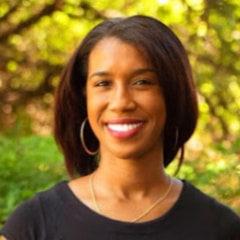
Speculative Herstories: A Narrative Analysis Study of Black Girls’ Afrofuturist Stories
Afrofuturism is a cultural aesthetic in which Black authors create speculative texts that center Black characters in an effort to reclaim and recover the past, counter negative and elevate positive realities that exist in the present, and create new possibilities for the future. This aesthetic has been used by Black authors to critique oppression and imagine unbound Black subjectivities in future or alternate worlds, so it is a tool that Black girls can use to imagine more equitable futures. The purpose of my dissertation study, then, is to center how Black girls might use oral storytelling and Afrofuturistic short story writing to critique, discuss, or subvert social in/justice and position themselves as agents of social change. Using Womanism and Muted Group Theory as the guiding framework, my qualitative study will harness narrative inquiry and thematic analysis to better understand the stories of seven Black girls participating in a Black women’s writing collective, a co-constructed space infused with unique elements of Black woman and girlhood. This focus is significant because the U.S Department of Education touts that prohibiting discrimination and ensuring equal access to education is essential. Because it is positioned as a pillar of social justice, the consistent erasure, marginalization, and dehumanization of Black girls presents critical challenges to the very foundation of the U.S. education system. Thus, my study is vital in assisting all education stakeholders to recognize and dismantle systemic, hegemonic practices that uphold, rather than denigrate the oppression of Black girls in educational spaces.
Qiao Wen, Teachers College, Columbia University

Qiao Wen is a doctoral candidate in the economics and education program at Teachers College, Columbia University. Her research interests include labor economics and higher education. Particularly, she combines credible evaluations that use experimental or quasi-experimental methods and structural models to examine both the treatment and general equilibrium effects of educational programs and policy changes, and to uncover the mechanisms through which such effects operate. Qiao has published articles in Evaluation Review, Journal of Educational Change, and Modern Management Science.
Qiao received her Master’s degree in international comparative education from Stanford University, and a Bachelor’s degree with double majors in economics and English literature from Peking University in China.
Higher Education Expansion in China: Consequences for Students, Institutions, and Global Competitiveness in Science and Technology
In 1999, the Chinese government initiated a radical and large-scale higher education expansion program. In 1999 alone, approximately 0.5 million more students were admitted into China’s regular higher education institutions (HEIs), a 48 percent increase from 1998. Between 1998 and 2001, nationwide enrollment in higher education doubled. This substantially expanded access to HEIs over the three years provides exogenous variation in the probability of college attendance for older and younger cohorts of students. Moreover, there were substantial inter-provincial variations in the number of increased spots after the expansion, which provides another dimension of exogenous variations in the probability of college attendance. Therefore, my dissertation uses the interaction between an individual’s birth cohort and the expansion intensity at his birth province as an instrumental variable to estimate the expansion’s causal effects on education and earnings. To further decompose the expansion’s aggregate earnings effect into the partial-equilibrium returns to college and other general equilibrium effects, I also construct a structural model of changing wage structures, and use multiple repeated cross-sections of data to identify shifts in the aggregate and cohort-specific supply curves of college-educated labor, potential shift in the demand for college-educated labor, and changes in the quality composition of the high school- vs. college-educated labor. Apart from labor market outcomes, my dissertation also examines the expansion’s impacts on access to and quality of different types and tiers of HEIs in China.
